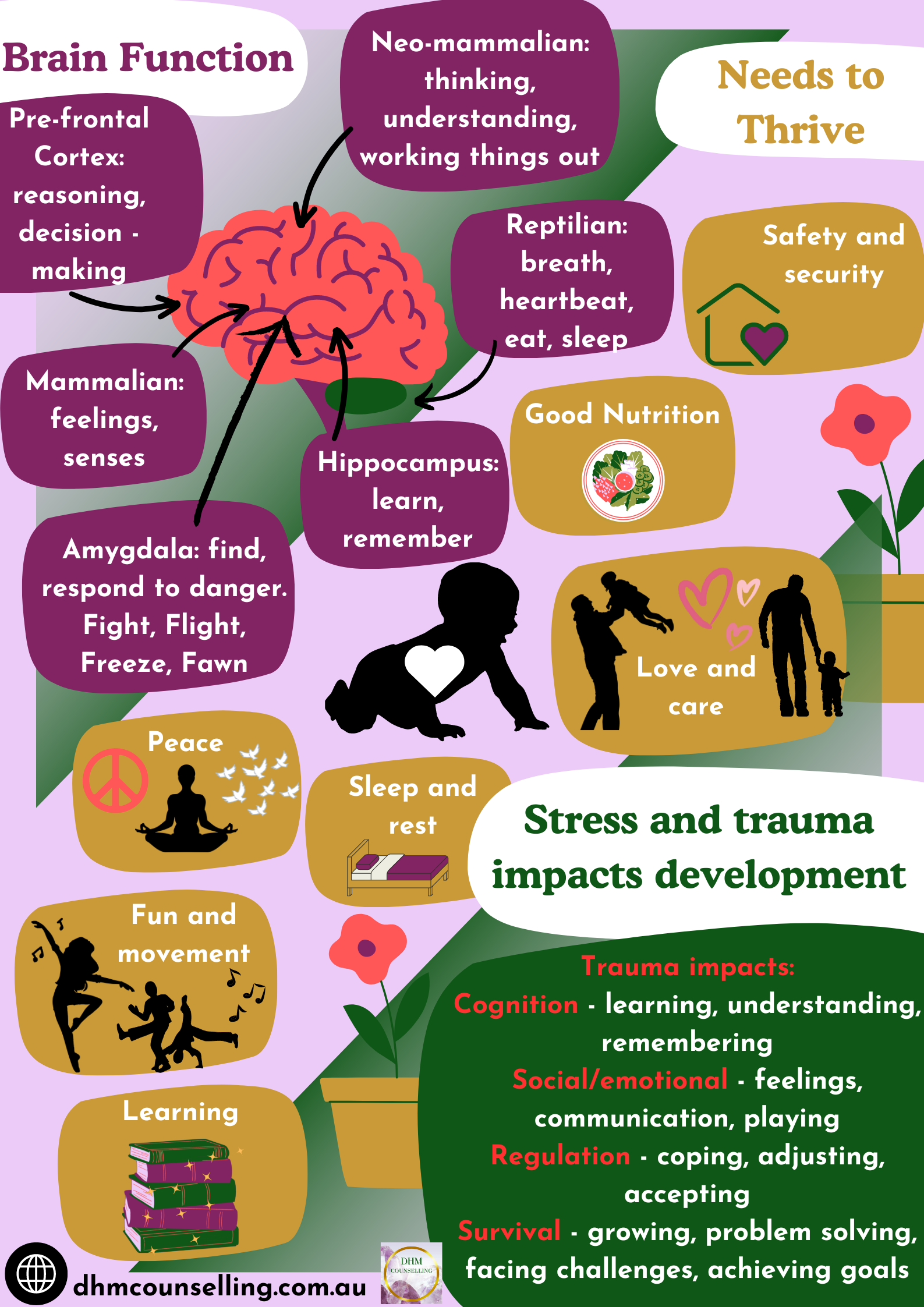Trust Issues
Trust is a central theme in therapy. It is a concept that impacts the likelihood of experiencing extreme adverse events, and is a strong determining factor in how well a crisis is navigated and recovered from.
Trust begins to take shape in our identity very early in our lives. It relies on strong, stable development, and healthy secure attachment patterns to early caregivers. When the foundational needs of a child are either unmet, are met inadequately or are significantly interrupted, it is highly likely that trust will be eroded in a way that causes lifelong disruptions to relationships, with both the self, others and the environment.
Having early experiences of broken trust impacts brain development. It causes a person to feel unsafe, forcing a survival response in the brain. When this happens for a prolonged period of time, that way of living becomes habitual and shapes an individual’s identity from childhood, into adolescence and adulthood.
When the basics of survival like shelter, food, warmth, affection, rest, safety, learning and fun are inconsistent or missing, the brain seeks to respond to others and situations in a way that expects those things to be either non-existent or difficult to obtain. It will strive to acquire those things in unconventional ways by replacing them with alternatives that provide the same feelings of wellbeing and safety, like risk taking and addiction, for example. It also takes on a protective approach to prevent the loss of those vital elements for survival once the feeling of safety, even if it is a false sense of security, is in place.
When early development and attachment are insecure, it causes stress and trauma resulting in an erosion of trust.
The brain develops unhealthy patterns to compensate for the feelings of safety and trust that are lost.
The emotional center of the brain, the Amygdala, responds distrustfully by perceiving danger and responding to counteract it.
The Fight, Flight, Freeze and Fawn responses help to re-establish trust of self, others and the environment. These responses however are not sustainable and are based on mistrust.
So how do we re-establish the ability to trust when it has been lost and damaged repeatedly over a long period of time, from as far back as infancy? If a sense of danger and lack is all a person has ever known, if they have never experienced a sense of safety and ease, how do they rebuild that ability to self-soothe from the inside out?
The first step is to recognise that there is a problem. Generally speaking, the human experience is that normal interruptions to development and secure attachment are inevitable. Even if the basics are in place in childhood, in the context of a life that is likely to contain normal adverse experiences, like the breakdown of relationships, financial insecurity, occasional illness and death, there will be a need for ongoing reflection around feeling safe and being able to trust, by the time adolescence and adulthood are reached. In other words, being able to trust is not something that stays constant and strong throughout your life. It is something that needs to be reflected on, reassessed, developed and maintained.
Counselling is the place where people can go to audit their trust issues. It is a place to reflect on patterns or habits that cause a survival mode response and provide a false sense of security - like addiction, self-harm or self-sabotage. In Counselling we can analyse what aspects of your life caused you to feel safe and secure and what didn’t. And we can think, talk about and notice emotions around the health, stability and functioning of your self-trust, your trust of others you are in relationship with and your trust in the world around you.
Take advantage of the FREE 30 minute introductory session and for a more in depth process, consider committing to a 10-session package which attracts a discount. One year from now, when you have invested in your relationship with trust, you will thank yourself for becoming the best version of yourself.
I look forward to meeting you!


